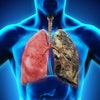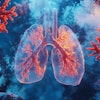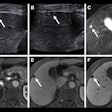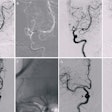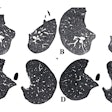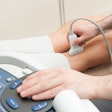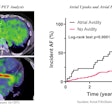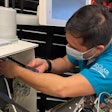Dear AuntMinnie Member,
Our top story for the past week concerns a fascinating -- but little understood -- phenomenon: that radiologists can sense that cancer is present in medical images when glancing at them for less than a second.
Researchers from the U.K. performed an experimental study in which radiologists and radiographers reviewed 200 mammograms for a half-second each, then rated the likelihood of an abnormality being present. They found that the readers were able to detect lesions in half the cases -- years before cancer became evident in some instances. They call the phenomenon "global gist," and the new work echoes previous research in the area.
We've published a number of other stories in our Women's Imaging Community this past week. A breast density advocacy group is asking the U.S. Food and Drug Administration to clarify the language it's going to require to be sent to women who are found to have dense breast tissue.
Another study endeavored to find out if previous research on the impact of reproductive factors on breast density, performed with analog film-screen systems, carries over into the digital era. And researchers from the University of Wisconsin-Madison examined whether risk-based mammography screening really saves lives.
FFR beats CCTA
In other news, researchers from Australia found that fractional flow reserve (FFR) measured with a noninvasive CT technique was better than coronary CT angiography (CCTA) in predicting long-term outcomes of heart disease.
And a group from the U.S. and Brazil found that the presence of coronary artery calcium on CT scans of middle-aged individuals was a good predictor of future heart failure, especially in African Americans.
And a fascinating study from Germany reinforced the value of CT lung cancer screening for high-risk smokers -- especially women. The study found a 69% mortality reduction for women who underwent screening, compared with just 6% for men. The study results are expected to play a role in establishing population-based CT lung screening in Europe.
Get these stories and more in our CT Community.
MRI for kids
We also have a new article on how researchers from Emory University developed a shortened MRI protocol designed to scan kids quickly without the use of sedation.
Finally, Italian researchers published a fascinating study that used cardiac MRI to assess the damage that cocaine causes to the heart. Visit the MRI Community.
